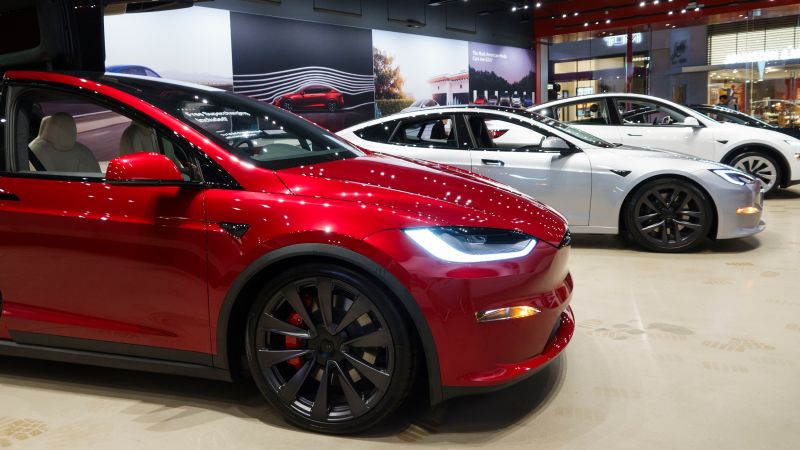Tesla, the renowned electric vehicle manufacturer, finds itself facing a troubling downturn in its sales figures. On a recent Wednesday, the company disclosed that it has experienced a significant drop in sales—a record plunge that raises eyebrows and prompts concerns within the automotive industry. This downturn can be attributed to multiple factors, most notably the adverse impact of CEO Elon Musk’s political engagements and an intensifying competitive landscape. Historically known for its rapid growth and innovation, the current challenges suggest that Tesla’s position in the market may be at risk.
Elon Musk, the polarizing figure at the helm of Tesla, has been involved in a range of political activities and public statements that have garnered both attention and controversy. These actions appear to have contributed to a deterioration of the Tesla brand, as they have created a divide among consumers who may be hesitant to support a company associated with polarizing political sentiments. Such a shift in public perception could be detrimental to Tesla’s reputation and, consequently, its sales performance. When customers feel disconnected from the values espoused by a brand or its leaders, it can lead to diminished loyalty and a reluctance to invest in that brand’s products.
In addition to the challenges stemming from CEO Musk’s behavior, Tesla must also contend with a growing field of competitors. Other automotive manufacturers are increasingly entering the electric vehicle market, presenting vehicles that rival those of Tesla in terms of technology, performance, and price. Established companies like Ford and General Motors have begun to ramp up their electric offerings, while newer entrants such as Rivian and Lucid Motors are also making waves. This heightened competition is squeezing Tesla’s market share and forcing the company to recalibrate its approach to maintaining relevance and appealing to consumers.
In light of these challenges, industry analysts and investors are keenly observing Tesla’s developments. The company’s ability to adapt to the evolving market dynamics will be crucial in determining its future success. Analysts suggest that Tesla needs to focus not only on maintaining its innovative edge but also on rebuilding its brand image. This may involve reassessing its marketing strategies, engaging with customers and communities more positively, and mitigating any negative perceptions linked to its leadership.
As of now, Tesla’s situation is still unfolding, and more updates are anticipated in the coming days and weeks. Company’s performance metrics may fluctuate in response to varied external factors, and stakeholders are eager to see how management will navigate these turbulent waters. For those invested in Tesla’s future, the hope is that the company can rebound from this record dip in sales and reclaim its status as a leader in the electric vehicle revolution.
The automotive sector is experiencing a paradigm shift towards sustainable energy solutions, with electric vehicles poised to take a prominent role in the future of mobility. However, for Tesla to maintain its pioneering status in this arena, it will need to address both the internal challenges and external factors at play. In particular, it will be essential to foster a favorable public image while exploring strategies that can keep setting its vehicles apart from competitors.
As this narrative progresses, the electric vehicle market will remain a focal point not only for performance figures and sales records but for broader implications related to environmental sustainability, technological advancements, and changing consumer behaviors. Tesla’s next steps will be critical, both for the auto industry at large and for its dedicated customer base who continue to watch the company closely.











